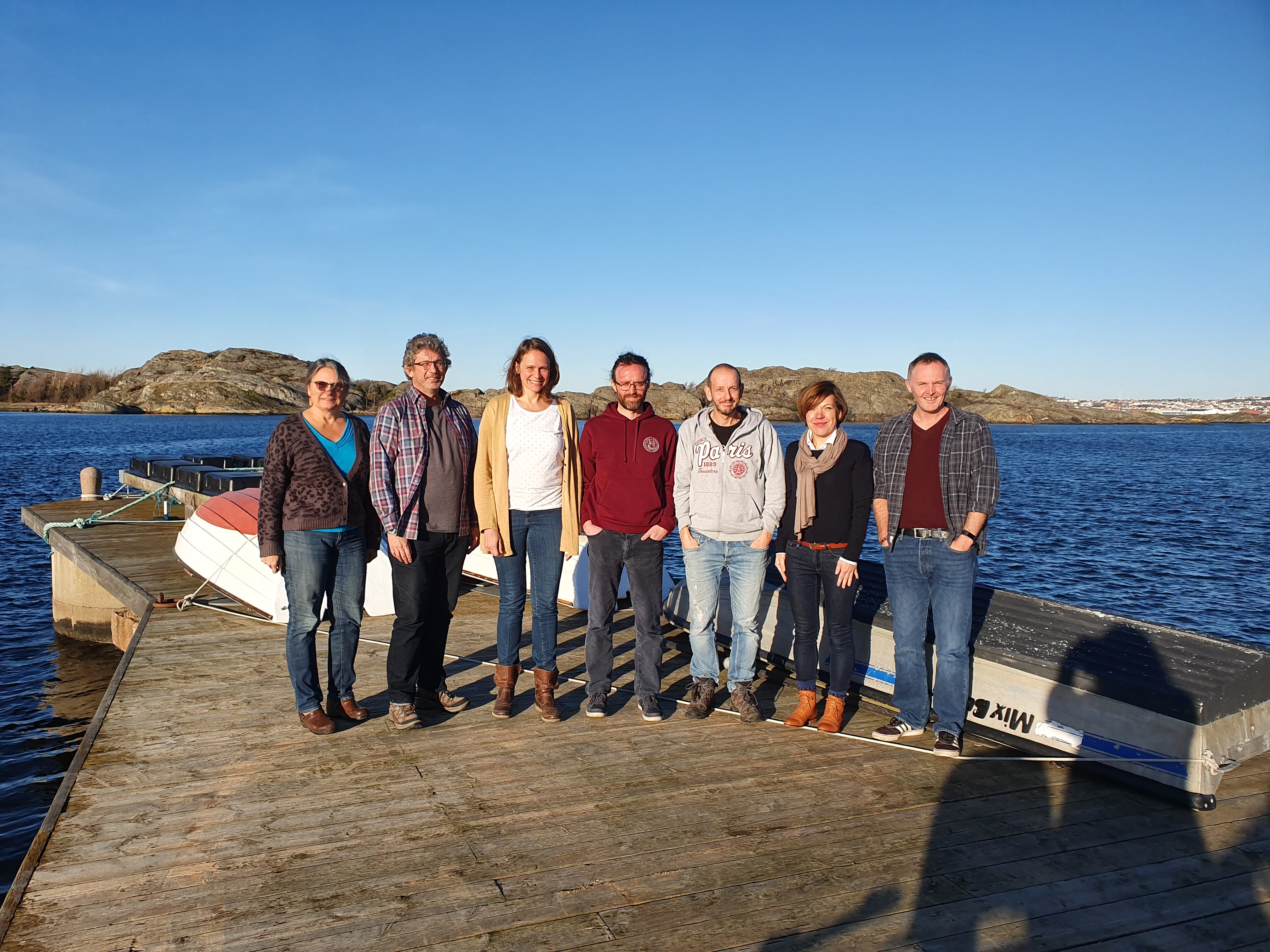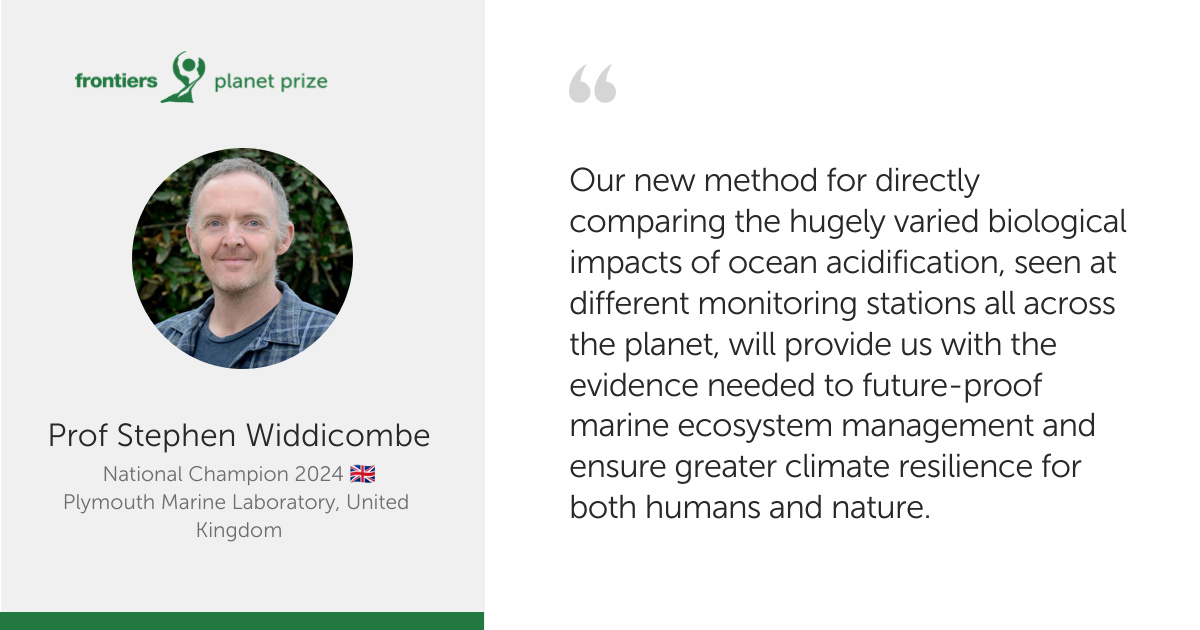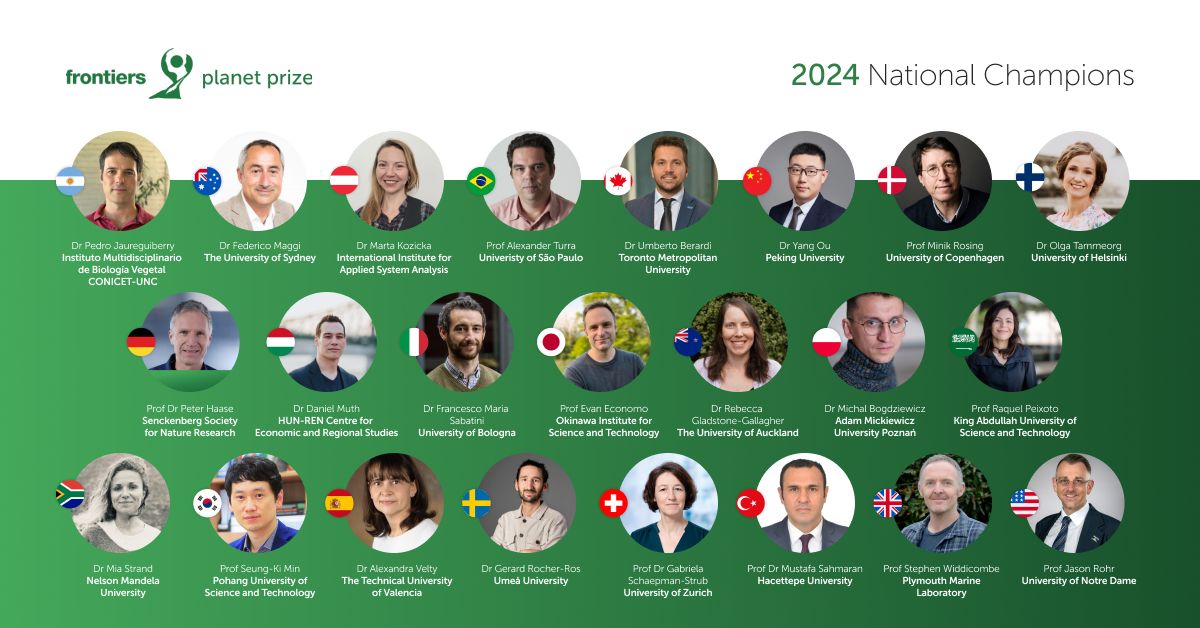Story
PML’s Prof Widdicombe voted as 2024 Frontiers Planet Prize Champion
22 April 2024

The Frontiers Planet Prize Prize recognizes scientists whose research “contributes to accelerating solutions that ensure humanity remains safely within the boundaries of the Earth's ecosystem”.
Professor Widdicombe was nominated for the research article: ‘Unifying biological field observations to detect and compare ocean acidification impacts across marine species and ecosystems: what to monitor and why’, (co-authored by Kirsten Isensee, Yuri Artioli, Juan Diego Gaitán-Espitia, Claudine Hauri, Janet A. Newton, Mark Wells, and Sam Dupont) and later voted as one of the champions by a jury of planetary health and Earth system science experts.

Above: Steve alongside co-authors of the paper
The National Champions now move forward to the final round of the competition, where three International Champions will be awarded 1 million CHF each to support their research. Launched by the Frontiers Research Foundation on Earth Day 2022, the Frontiers Planet Prize aims to mobilize science for a global green renaissance. The Prize rewards and promotes breakthroughs in sustainability science that show the greatest potential to keep the planet from crossing the nine planetary boundaries, a framework put forward by Prof Johan Rockström. The National Champions are selected by the independent Jury of 100, a group of renowned sustainability and planetary health experts.
These National Champions will undergo a second round of voting, where the Jury select the three International Champions who each receive one million Swiss francs to further support their research.
The Frontiers Planet Prize announced its 2024 champions on Earth Day, recognizing those whose research offers the greatest transformational potential and global scalability:
‘The 23 National Champions have published groundbreaking articles that contribute to our understanding of the Earth’s systems and put forward pathways to transformative solutions with respect to the nine planetary boundaries. Their work spans a wide range of disciplines, from climate change mitigation and sustainable energy solutions to advancements in healthcare and technology. Each Champion has demonstrated a deep commitment to their research, showcasing not only their scientific expertise, but also their dedication to making the world a better place.’ [Frontiers Planet Prize]


About Professor Steve Widdicombe:
Professor Widdicombe has been instrumental in developing the understanding of the effects of ocean acidification on the marine environment, since the term was first coined in 2003.
He is Co-Chair of the Global Ocean Acidification Observing Network (GOA-ON) Executive Council and helped to establish its North East Atlantic Hub. GOA-ON is a collaborative international network with around 1,000 scientists from more than 100 countries, to detect and understand the drivers and impacts of ocean acidification. The network is fundamental to providing early warning of the impacts of ocean acidification on natural ecosystems, wild and aquaculture fisheries, coastal protection, tourism and local economies. Steve represented the GOA-ON on OSPAR’s Intersessional Correspondence Group on ocean acidification and was an author of the ocean acidification chapter in the 2023 Quality Status Report (Ocean Acidification (ospar.org)).
He co-leads the UN Ocean Decade endorsed programme ‘Ocean Acidification Research for Sustainability’ (GOA-ON : OARS), which aims to provide society with the observational and scientific evidence needed to sustainably identify, monitor, mitigate and adapt to ocean acidification; from local to global scales. Steve regularly contributes to high level policy discussions such as at the UN Climate Change meetings the UNFCCC COPs, as moderator of a 2022 UN Ocean Conference Dialogue; through Co-Chairing a previous CBD international expert group meeting and presenting at the CBD COP15.
Steve is an identified “focal point” for ocean acidification as part of the United Nations Communities of Ocean Action, working together with the UN Secretary-General's Special Envoy for the Ocean and the UN Department of Economic and Social Affairs on the thematic areas which support SDG 14.